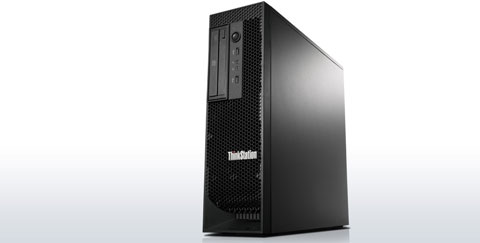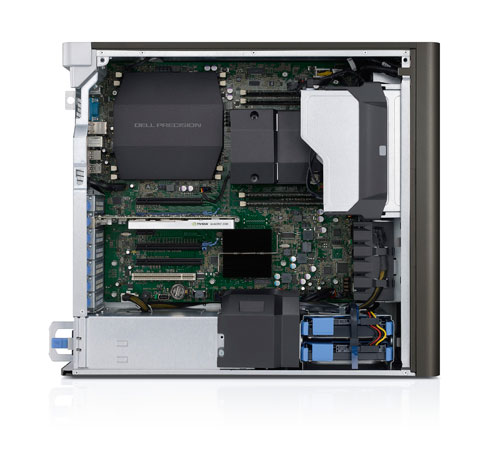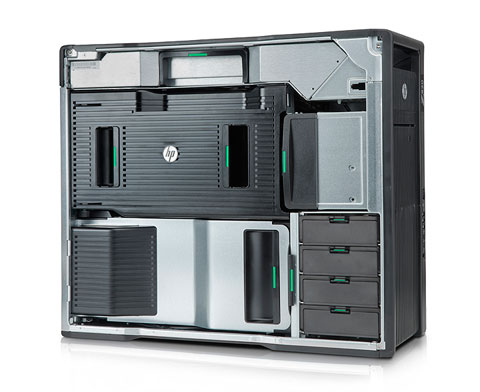
Lenovo brings the Intel Xeon E5-2600 v2 to its exceedingly compact ThinkStation C30
With the release of the Intel Xeon E5-1600 v2 and Intel Xeon E5-2600 v2 processors the floodgates have opened for new workstation releases.
Dell, HP, Lenovo and Fujitsu all have new or updated machines, while the smaller, specialist workstation manufacturers have also refreshed their ranges.
In terms of single processor workstations, ideal for mainstream CAD and occasional rendering or simulation, there is plenty of choice. All machines offer lots of options for 3D graphics – including multiple models from AMD FirePro and Nvidia Quadro – but it’s in processors where you find the biggest variation between the manufacturers. All offer high GHz Xeons with six cores, ideal for CAD and entry-level CAE, but only some make the 8, 10 and 12 CPU core chips available, which will boost performance in ray trace rendering software.

The tidy interior of Dell’s Precision T3610
In the Precision T3610 Dell has standardised on the Intel Xeon E5-1600 v2, a CPU designed specifically for single socket workstations. This offers the highest GHz out of all of the new Intel chips with clock speeds up to 3.7GHz, but it is limited to six CPU cores.
With the Z420, HP has mixed things up adding the Xeon E5-2650 v2 to the full range of E5-1600 v2 series CPUs. This pushes the number of available cores up to eight.
Out of all the manufacturers Fujitsu offers the greatest choice in its single socket Celsius M730. The machine supports the full range of Xeon E5-1600 v2 and Xeon E5-2600 v2 processors including the Intel Xeon E5-2697 v2, a 12 CPU core chip ideal for driving down ray trace render times. The tradeoff is a drop in clock speed down to 2.7GHz.
In terms of dual processor workstations Dell offers the compact Precision T5610 and the Precision T7610 for top performance and expandability.

HP’s highly serviceable Z820
HP offers a similar two tier product range with the HP Z620 and HP820 while Lenovo takes it to extremes with the exceedingly compact ThinkStation C30 and the expandable ThinkStation D30. Meanwhile Fujisu goes it alone in the dual processor space with the Celsius R930.
In terms of new technologies HP highlights the addition of 2nd generation Thunderbolt ports to its HP Z Series. Thunderbolt offers data transfer speeds up to four times faster than USB 3.0, which will be attractive for those that work with particularly large CAD datasets.
Fujitsu focuses on virtualisation, calling out the ability of its rack-mountable Celsius R930 to support up to three Nvidia GRID GPUs. The dual processor workstation also supports multiple Intel Xeon Phi coprocessors for High Performance Computing (HPC) applications. This manycore x86-based card is also an option in Dell’s new Precision workstations.
Dell highlights its new Intel Cache Acceleration Software – Workstation (CAS-W), which is designed to speed access to large datasets stored on hard drives. It’s also added a 350GB Micron P320h PCI Express card for extremely high performance storage.
Meanwhile, Boston, Scan, Workstation Specialists, InterPro, and SuperMicro have all incorporated the Ivy Bridge Intel Xeon chips into their workstation families. Check out their websites for details.






